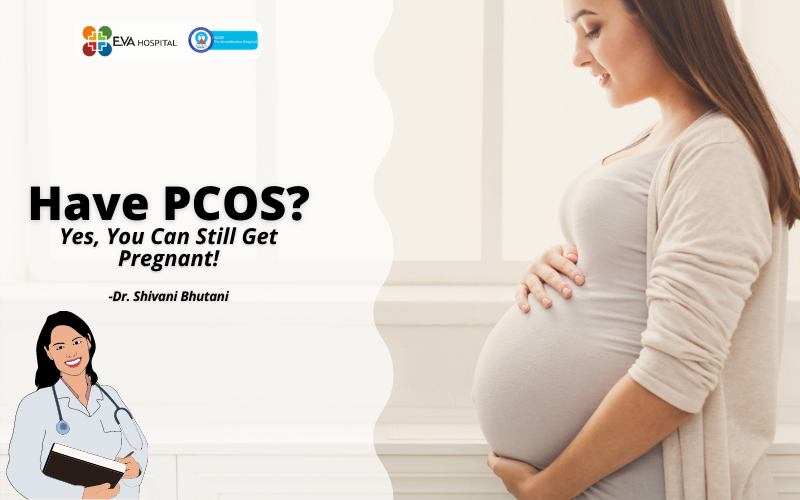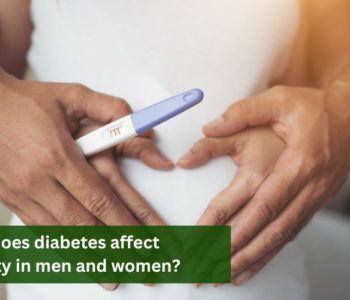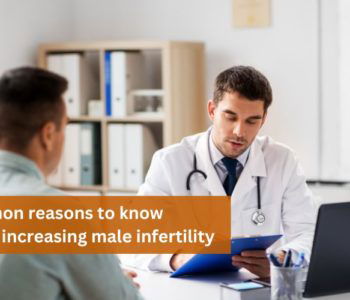Have PCOS? Yes, you can still get Pregnant!
 Eva Hospital
Eva Hospital
Have PCOS? Yes, you can still get Pregnant!
If you have PCOS, you can still get pregnant and have a healthy pregnancy with various treatment options available.
PCOS is a condition where the female fails to ovulate regularly.
Ovulation is the process of release of eggs by the ovarian cells – once in every menstrual cycle. When the eggs do no release, they remain in the ovarian cells as cysts. This is called Polycystic Ovarian Syndrome.
Infertility is the first consequence of PCOS because fertilization can not occur when the eggs are not available.
Most women can conceive with a combination of :
● Fertility drugs,
● IVF, and
● Lifestyle changes
Fertility Medications
Clomiphene Citrate- Most women with PCOS can get pregnant with Clomid. Clomiphene or Clomid stimulates the ovaries to regularise ovulation. Nevertheless, it’s not effective for everybody.
Females with Clomid resistance do not respond to the drug and ovulation does not occur. A combination of metformin with Clomid is found to benefit such women and enable the release of eggs.
Metformin- One of the reasons for PCOS is the imbalance of insulin level in the blood. This interferes with conception. The imbalance may be caused by insulin resistance.
Metformin can cure insulin resistance, help in weight loss, and in conceiving. Although it is a medicine for diabetics, it’s used is safe for treating infertility.
It regulates ovulation, regularises the menstrual cycle, and considerably reduces the chances of miscarriage.
Letrozole – This medication is an ovulation stimulator for women with PCOS. According to Dr. Shivani Bhutani, Infertility& IVF specialist at Eva Hospital, some women respond better to Femara( letrozole brand name) than to Clomid.
Global research has substantiated its effectiveness for the treatment of polycystic ovary and ovulation disorder.
Fertility Injections – When the above drugs and their combination does not facilitate a woman with PCOS to get pregnant, hormone therapy is the next step.
It might be the first line of treatment if the infertility specialist thinks that hormonal imbalance is the underlying factor. Injectable drugs are called Gonadotropins. These consist of hormones such as FSH and LH or a combination of the two.
The doctor may even suggest gonadotropin along with oral medications( such as Clomid), or intrauterine insemination( IUI).
IVF or In Vitro Fertilization
IVF is a standard procedure for making pregnancy a reality for women with PCOS. When the medicinal treatments do not work, infertility specialists suggest in-vitro fertilization.
It involves using injectable fertility drugs to stimulate multiple ovulation, retrieving the eggs, and fertilizing them with sperm, in a petri dish. The sperm may be from your partner or a donor.
Agreeably, the sperm fertilizes some of these eggs. After allowing these embryos to grow for a while, one or more are implanted in the uterus. A pregnancy test confirms the success of the procedure.
Lifestyle Changes
To increase your chances of getting pregnant with PCOS, diet and lifestyle changes must be followed, with or without ongoing treatment.
Weight Loss
PCOS can be a consequence of obesity or vice versa. The occurrence of polycystic ovaries may also cause obesity. It is a condition where either there is no ovulation or irregular ovulation.
Weight loss can help with both. Regularizing your body weight can start ovulation as well as make it normal.
Diet and Exercise
Exercise and diet play an important role in pregnancy for women suffering from PCOS. Insulin production and weight management are the factors responsible for controlling the impact of the condition.
All dietary changes should be aimed at controlling insulin levels and weight. Take a low carb diet, push up the protein,s and stay away from alcohol and caffeine when you are trying to get pregnant.
A regular, (but not too heavy)workout regime helps in controlling body mass index, weight management,t and reducing stress levels.
Here Are a Few Dietary Tips to Try:
Boost Vitamin D: Studies have shown that good levels of vitamin D help women with PCOS to conceive and have a successful pregnancy. Low levels of vitamins may lower the odds of conception.
Include cinnamon: According to a study, taking 1.5 grams of cinnamon every day helps regulate insulin levels and stimulate ovulation.
You can sprinkle cinnamon powder on salads or vegetables and add it to your drinks. It is known to regulate periods









